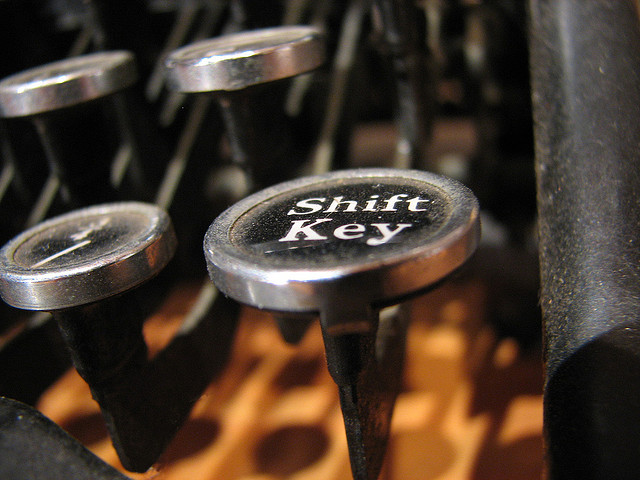If You Have a DIY Contract, Do These Things
When you first start working for yourself, having a DIY contract can make sense. There are a lot of good resources online so you don’t have to start from scratch, not to mention blog posts for just about every industry with Very Strong Opinions™ about what should and shouldn’t be in a standard contract.
Most importantly, DIYing a contract means that you can make sure you never work without a contract.
But a DIY contract does have drawbacks. While much of a contract is (and should be!) about the work and fairly straight forward, there are some “invisible lawyerly bits” in all contracts. They dictate how the contract will be interpreted and understood, and if you don’t write your contract aware of these invisible lawyerly bits, you can unintentionally screw up things up.
If you can’t hire an attorney to draft a contract for you and you’re putting one together yourself, here are a few of those invisible bits to be aware of. I’ve also thrown in a handful of recommendations for ensuring your contract works.
Already put your own contract together? Good job! Read this post anyway, even if you’ve used or read the Contract Killer. It has bits and pieces I’ve not found in other resources.
Write Practically, Read Carefully. Writing a contract is like writing anything else: if you want it to resonate, you must write for your audience. Use short sentences. Avoid trying to make your language “sound lawyerly.” Number paragraphs so they’re easy to find. Write simply to encourage the other side to read the contract carefully.
Definitively Defined Help your reader understand the contract by defining words that are important, and only defining each word once. You can either define words in a separate definition section or identify when language in the contract means a specific thing using a parenthetical. Like so:
…a 22-page comic about an all-female militia based in the NuePhoenix colony on Zorahorne that goes rogue to avenge the murder of one of their own, which may have been sanctioned by officials at the highest level of the Unity government (the Comic)…
…all work will be performed at Client’s office located at 123 SW Elm Street, Portland, Oregon 97205 (the Office)…
If you have to define a word that could mean Something Specific To What You’re Doing, but could also mean Something More Generically Applicable, use punctuation to signal which usage you intend. For instance, when talking about the specific design, illustration or website I’m making for the client I’ll write “Work.” But when I’m talking about what action I will take on behalf of a client, I’ll write “work.”
Give Everyone a Name. The people (or organizations) entering a contract are called “parties” and each party to a contract should be easy to identify. Why? Because you want to make sure that everyone understands what they need to do. So make sure everyone has a name. Don’t identify the parties with names that are easy to confuse, like my pet peeve “Licensor” and “Licensee,” or refer to the parties using Who’s-On-Firstian “party of the first part” language. Use names that are easy to differentiate and relate to what that party is doing in the relationship.
You and Me and I and You Some people don’t like naming the parties things like “Client” or “Illustrator” or “Supreme Overlord,” so they use personal pronouns instead. While not a best practice, this can be O.K. as long as you’re clear about which pronoun is identifying which party. And, and, and somewhere in the contract you make it clear that both parties wrote the contract. Why? Because in contract disputes, when language is unclear a judge will typically interpret that language in a way that is most favorable to the party who didn’t write the contract. Which reminds me….
Don’t Put Your Logo On The Contract
I know it looks nice and I know most contracts look boring, but if you have your name and logo stamped all over the agreement and there is ever a dispute about what certain language means, you put yourself at a real disadvantage by boldly declaring, “Me! I wrote it! These are my words from my head! Mine!”
Be a Company Man (or Woman)(or Non-Binary Human) If you’ve gone to the trouble of making your business a limited liability company or corporation, don’t squander that effort (and legal protection) when you write your contract. Whenever possible, have your company, rather than you personally, be the party to the contract. When you do, include “LLC” or “Inc.” when writing out your company name. I know it seems like it’s just three little letters, but they mean a lot if the contract is ever in dispute.
I don’t think that all contracts have to be written by a lawyer to be good, and I think a DIY contract is better than no contract at all. If you pick up the pen to protect yourself, take some time to educate yourself about the basics of putting an agreement together. Read a couple of contracts before you start writing.
If you’re ever in doubt about how to handle an issue in a contract, ask questions of your peers. When your draft is complete, consider hiring an attorney for an hour to go over the contract with you. They can help make sure it’s in good shape and has everything you need to be successful.
Categories: Contract Hacks
Tags: Contracts, Freelance, practical advice
« Understanding Rates in Context
How to Prepare for a Negotiation When You Don’t Have the Time »






